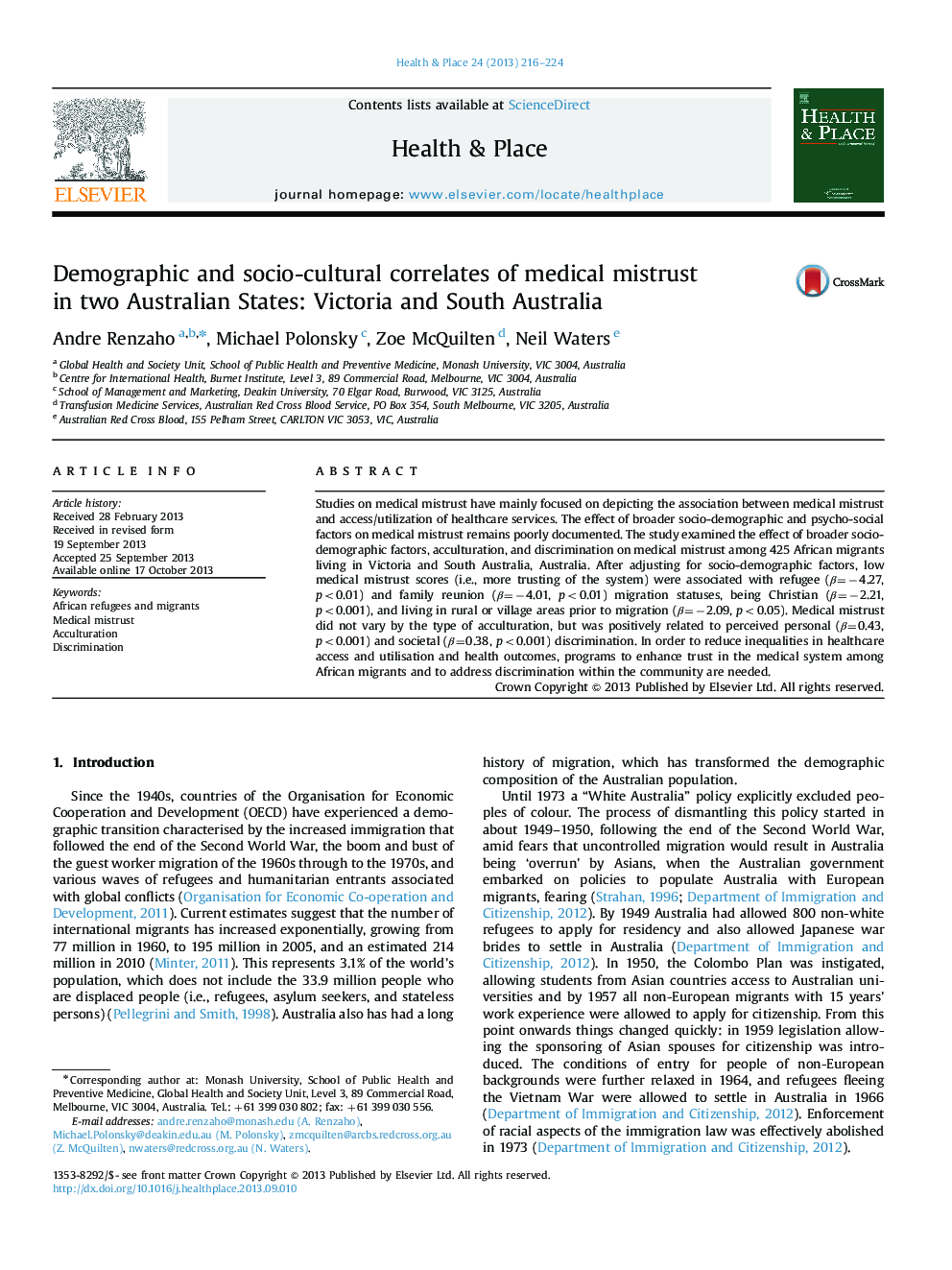| Article ID | Journal | Published Year | Pages | File Type |
|---|---|---|---|---|
| 7459021 | Health & Place | 2013 | 9 Pages |
Abstract
Studies on medical mistrust have mainly focused on depicting the association between medical mistrust and access/utilization of healthcare services. The effect of broader socio-demographic and psycho-social factors on medical mistrust remains poorly documented. The study examined the effect of broader socio-demographic factors, acculturation, and discrimination on medical mistrust among 425 African migrants living in Victoria and South Australia, Australia. After adjusting for socio-demographic factors, low medical mistrust scores (i.e., more trusting of the system) were associated with refugee (β=â4.27, p<0.01) and family reunion (β=â4.01, p<0.01) migration statuses, being Christian (β=â2.21, p<0.001), and living in rural or village areas prior to migration (β=â2.09, p<0.05). Medical mistrust did not vary by the type of acculturation, but was positively related to perceived personal (β=0.43, p<0.001) and societal (β=0.38, p<0.001) discrimination. In order to reduce inequalities in healthcare access and utilisation and health outcomes, programs to enhance trust in the medical system among African migrants and to address discrimination within the community are needed.
Related Topics
Health Sciences
Medicine and Dentistry
Public Health and Health Policy
Authors
Andre Renzaho, Michael Polonsky, Zoe McQuilten, Neil Waters,
